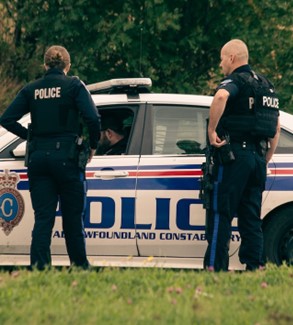Anthony Escamilla works in law enforcement management and policy creation in the Chicago area. In this role, he highlights the importance of training and mental health wellness for first responders. In the following article, Anthony Escamilla spotlights groundbreaking organizations dedicated to transforming mental health support for these courageous yet often unsung heroes in high-risk professions.
First responders: they see the best and the worst of people. Often unrecognized, their around-the-clock toil is the core of communities around the world. Without them, humanity would be more unpredictable, dangerous, and medically unfit than imaginable. Firefighters, corrections officers, EMTs, dispatchers, and law enforcement personnel continuously put themselves on the front line, only to have the stress and trauma of constantly being the strength in worst-case scenarios take a colossal toll on their mental health. Something must change.
Thankfully, there are a few organizations out there recognizing that, despite their hero-esque contributions, first responders are human beings too, and their mental health should always take priority. Anthony Escamilla, Police Officer highlights Lexipol, Survive First, and the FirstNet Health and Wellness Coalition - these entities are leading the charge to cover these noble, honorable individuals in mental health protection.
From the exceptional mission to reduce first responder suicide to the program that transforms post-traumatic stress into growth to the globe's first Wellness Week dedicated to frontline professionals, these organizations are putting as many programs into place as possible to achieve their goals and help those who save others every single day.
One of the driving forces behind the First Responder Wellness Week was the considerable amount of stress and trauma faced by such professionals on a daily basis. Anthony Escamilla, Police Officer explains that they experience and witness traumatic events on a scale those outside the public safety personnel sphere would find it inextricably challenging to comprehend.
Anthony Escamilla of Chicago says that even though first responders are courageous and tough, they are still humans who require support. The constantly witnessed trauma builds up over time, increasing their likelihood of developing anxiety, PTSD, heart disease, depression, cancer, and early death. These terrible factors (and more) were acknowledged during the week, and individuals were given access to therapeutic wellness routes.
Alongside the main mission, First Responder Wellness Week toiled to eradicate the stigma responsible for unnecessary suffering amongst frontline workers. Their societal placement demands resilience and strength, but it's these virtues that can propel themselves into disarray, isolation, and helplessness. And as professionals mentioned throughout the week, nothing should stand in the way of these people receiving high-quality care.

According to a survey, a whopping 70% of participants have tried to remedy themselves, with over 50% attempting to eradicate stress by spending more time with their loved ones. However, Anthony Escamilla of Chicago says that it's clear to the Coalition that there's an immeasurable need for stress-reduction and wellness geared toward the specific needs of frontline workers.
Anthony Escamilla, Police Officer explains that the entity is helping to nurture post-traumatic growth by partnering with Boulder Crest and similar organizations to offer mental health/wellness services to veterans and first responders to changing PTSD into growth. The aforementioned organization is a pioneer in this science, and with the FNHWC's help, they've launched the First Responder Initiative that includes Boulder Crest's Struggle Well Training.